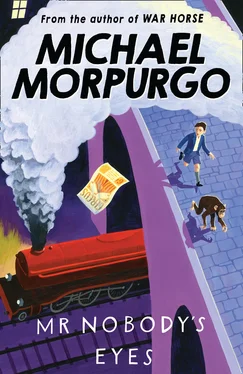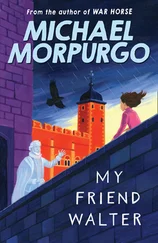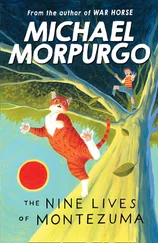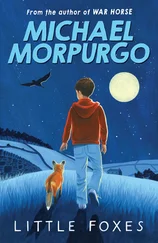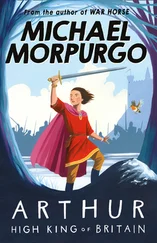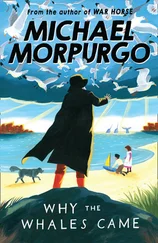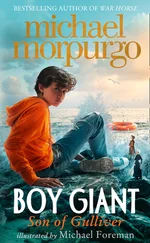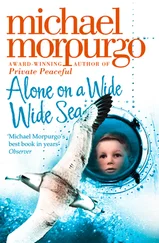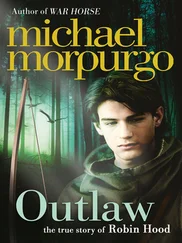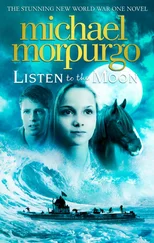Harry smiled and thought of Bournemouth, of number twenty-two Seaview Terrace; of Mrs Coleman, the landlady – ‘Call me Aunty Ivy,’ she had said – and the little room he had shared with his mother. He remembered the stories his mother had read him in bed, the smell of clean sheets, and the sparrows squabbling outside their window. Then there was the day they had built the sandcastle with its ramparts and towers, with its great cuttleshell walls – hundreds of them they had collected – so that it should be forever impregnable against the sea. He could see now the great moat they had engineered and the driftwood plank that served as a drawbridge. He had stood on the drawbridge and watched the sea surge up the beach and into the moat under his feet only to be held at bay by the cuttleshell walls. Then with the darkness falling and the swifts screaming low over the beach, they had planted a flag in the tower and left the beach behind them, their sandcastle an island now but still standing. And then came the two black dogs with wildly whirling tails, cavorting through the shallows. They stopped by the castle to investigate and decided this was just the place to dig. Perhaps it was the only soft sand they could find. No shrieks, no yells could shift them as they dug in the sand with crazed abandon. Within seconds the castle was reduced to a formless pile of sand. ‘Perhaps they were after sea rabbits,’ Harry’s mother said, as they walked home happy with laughter.
Home was Aunty Ivy’s white-painted villa with the green balconies all around, where the food always filled your plate to the edges and where there always seemed to be more. ‘Haven’t you heard of rationing?’ Harry’s mother asked.
‘Rationing, dear? Never heard of it,’ laughed Aunty Ivy, and she tapped her nose conspiratorially. ‘We have our ways,’ she said, ‘and that’s all I’m saying.’
It was Aunty Ivy that made up the picnic baskets they took with them each day to the sea or to the cliffs. Harry’s mother preferred to eat lunch away from the sand of the beach, so they walked the cliffs searching for the right spot. They would spread out the red-checked cloth, feast themselves on sausage rolls and digestive biscuits, and look down at the gulls and fulmars floating below them on the air.
They were on their way back from the beach one evening when his mother stopped to watch the very last of the sun disappear into the sea. ‘That’s where your father’s plane went down, Harry,’ she said. ‘He’s out there somewhere. Still, no one could have a better grave, could they?’ She put her arm round him and pulled him close. ‘We mustn’t ever forget him, Harry.’
‘ Harry !’ The cry came in unison, a cry of dismay and anger. Harry never even saw the ball. He heard it crashing against the wire mesh above his head and felt the crumbs of rust fall on his neck as he ducked. Recriminations were sharp but mercifully brief, because everyone knew there were only a few short minutes left until the end of break. He conjured up Bournemouth again, although he didn’t really want to, not any more. It was like a recurring dream that you have to finish even though you know it ends badly.
The day on the pier was the day it all went wrong for Harry. A fierce gale was whipping the beach into angry sand squalls so that no one could stay there for long that morning. The cliffs were shrouded in cloud so they ate their picnic in a bus shelter and then, tucking the cloth back into the basket, they made for the pier. Harry said he wanted to walk all the way to the end, and so they did, hanging onto the rail and to each other to save themselves from being blown across to the other side. They laughed aloud in the wind and the spray as the waves seethed below them and crashed against the pier. They had reached the end and were breathless with the wildness of it all when the cloth from the picnic basket was whipped out by the wind and flew off down the pier wrapping itself around the rails some fifty yards away. Harry went racing after it but someone was there before him. A tall man he was, with glasses. He had the cloth in his hands. ‘Not sure you should be out here on your own,’ he said as Harry took the cloth from him, and his mother came running up.
‘He’s not on his own,’ said Harry’s mother, ‘he’s with me.’
‘Even so I think it’s a bit risky, don’t you? Here, let me help you.’ He took the basket. ‘Come on, take an arm each and hang on.’
They did not need his help and Harry knew it; and what was worse, Harry knew his mother knew it, but she took his arm just the same. Harry had no choice. He followed her example and clung to the man’s arm all the way back down the shuddering pier as the waves broke over it, showering them with sea-spray so cold that it took the breath from their bodies. In the shelter of a tearoom the man took off his glasses, shook out his coat, and introduced himself. ‘I’m Bill Wesley,’ he said, holding out his hand to Harry’s mother, and she was smiling at him as she took his hand.
In the days that followed Harry hardly saw his mother. It was Aunty Ivy who built sandcastles with him now and pushed him on the swing in the front garden. ‘If I’d had a little boy I’d have wanted him to be just like you, pet,’ she told him, ‘but Mr Coleman and me, we weren’t blessed.’ Harry wasn’t sure what she meant by that. It was Aunty Ivy and not his mother who read bedtime stories to him, kissed him goodnight and tucked him up leaving the door open for the light. He heard her tell his mother one morning out in the passage, ‘I’ll look after the boy for you, it’ll be a treat for me. I’ve always wanted one of my own, you know. You go and enjoy yourself with your young man. You’re only young once.’ And so every morning after breakfast Bill Wesley would come, and his mother would say to Harry, ‘You don’t mind, do you, dear? Aunty Ivy will look after you. I’ll be back before bedtime.’ But she never was.
On the last day at breakfast his mother said that Billy – she called him ‘Billy’ now – wanted to take them both on a boat trip. ‘He wants to get to know you a bit,’ she said. Harry told her he wasn’t feeling very well – he was sure she wouldn’t go if he wasn’t well. But his ruse backfired on him. Aunty Ivy put her warm hand on his forehead and said she thought he might well have a fever coming on and that perhaps he ought not to go out, that she would be quite happy to look after him. So his mother went out with Bill Wesley on the boat without him.
Harry watched them from his bed through Aunty Ivy’s binoculars. He watched them out in their bobbing boat until his anger made him cry. Aunty Ivy said she understood.
She cuddled him close and kissed him. ‘It’ll be all right, pet. I’ll take care of you. If you ever need a friend your Aunty Ivy will always be here. Come on, cheer up. She’s a pretty woman, your mother. Only natural she’d take up with someone one day. Nice young man he is too – works in a bank, he tells me. A woman doesn’t want to stay a widow all her life – believe me, pet. She should get married again. Only natural.’
And that’s just what happened only a few months later in St Cuthbert’s. They had the reception in the church hall afterwards. Harry was there, lost in the legs of the wedding guests. ‘Are you happy for me, Harry?’ his mother asked him. She was wearing the brown suit, but the winged brooch wasn’t there any more. Harry nodded.
‘Doesn’t look very happy to me,’ said Bill, bending down and ruffling his hair. ‘I’ll be looking after you both now, Harry.’
‘Give us a smile, Harry dear,’ his mother said through her tears. Harry smiled, but just to please her. She kissed him and whispered, ‘It’ll be all right, you’ll see.’
Читать дальше
